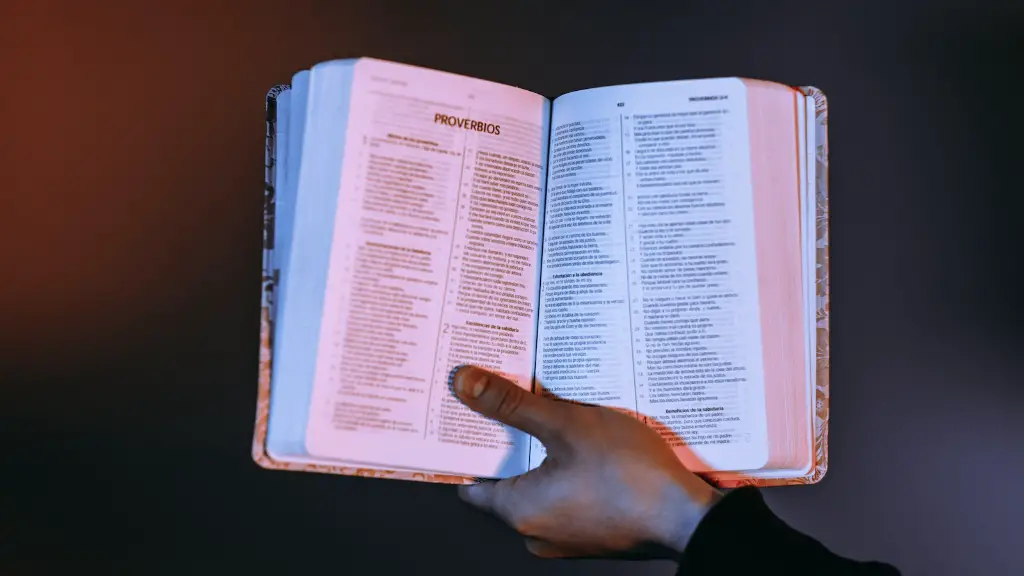There is no mention of Ash Wednesday in the Bible. This day of fasting and repentance is a Christian tradition that developed centuries after the Bible was written. Although it is not required by the Bible, many Christians believe that Ash Wednesday is a day to humble oneself before God and to seek His forgiveness.
There is no direct mention of Ash Wednesday in the Bible. However, the practice of fasting and penance prior to Lent has scriptural precedent. In the Old Testament, people would often fast and put on sackcloth and ashes as a sign of repentance.
Who started Ash Wednesday?
The origins of Ash Wednesday can be traced back to ancient Rome. There, sinners and penitents dressed in sackcloth were sprinkled with ashes to start their period of public penance on the first day of Lent.
Nowadays, Ash Wednesday is still observed by many Christians as a day of repentance and fasting. During the Ash Wednesday service, a priest will often mark a cross on the forehead of each person with ashes, as a reminder of their mortality and need for forgiveness.
Lent is a time when Christians remember and reflect on the 40 days that Jesus spent fasting in the desert. We also use this time to prepare our hearts and minds for Easter. It is a time of self-denial and spiritual growth.
Why dont Christians do Ash Wednesday
Most Christians believe that fasting should not be limited to the Lenten period alone. However, some Christians do observe Ash Wednesday or the 40-day fasting that culminates into Easter. Jesus said when you are fasting, it should not be made known to people. Therefore, Christians should be mindful of how and when they fast.
The ashes from Ash Wednesday come from burning the palm leaves from the previous year’s Palm Sunday celebration. Palm Sunday is the last Sunday of Lent and leads into Holy Week. On this day, people laid palms to cover Jesus’s path as he arrived in Jerusalem, just days before he was crucified. The ashes from Ash Wednesday serve as a reminder of our mortality and the need to repent for our sins.
Do Baptists celebrate Ash Wednesday?
Baptists are a denomination of Christianity that typically do not observe Ash Wednesday. However, many Baptists do choose to observe this day as a way to remember Christ’s sacrifice and to prepare for Lent. Ash Wednesday is a day of fasting, prayer, and repentance.
Ash Wednesday is a day of prayer and fasting that marks the beginning of Lent. It is observed by Catholics, Anglicans, Lutherans, Methodists, Moravians, Nazarenes, and others. On this day, people typically attend church and receive ashes on their forehead, which symbolize repentance and sorrow for sin. Many also choose to fast or give up certain foods or activities for the duration of Lent.
Do Christians believe in Lent?
Lent is a practice observed by most Christian groups during the 40 days leading up to Easter. It is a time of fasting, prayer and repentance. While historically Baptists have not generally practiced Lent, many individuals within the Baptist tradition do observe it.
In this passage, we see Jesus being led by the Spirit into the desert to be tempted by the devil. He fasts for 40 days and 40 nights, and afterwards is hungry. The tempter approaches and tries to get Jesus to turn stones into bread, but Jesus resists. This shows us that Jesus is fully human and faced the same temptation that we all face. He shows us that it is possible to resist temptation and is an example for us to follow.
What did Jesus do during Lent
Lent is a Christian observance that commemorates the 40 days that Jesus spent fasting in the desert. It is a time of penance and reflection, and is observed by many Christians around the world.
The first day of Lent, Ash Wednesday, is a day of repentance and fasting. It is observed by numerous denominations within Western Christianity, including Roman Catholics, Lutherans, Anglicans, Reformed churches, Baptists, Methodists, and Mennonites. On this day, believers seek forgiveness for their sins and ask God for strength to resist temptation.
What is the biblical reason for Ash Wednesday?
Ash Wednesday is a reminder of human mortality and the need for reconciliation with God. It is the beginning of the Lenten season and is commonly observed with ashes and fasting.
Lent is a time for Christians to remember the events leading up to and including the death of Jesus Christ. It is a time to reflect on Christ’s life and teachings and to prepare for the Easter celebration.
When did Ash Wednesday start in history
Ash Wednesday is a religious holiday that occurs on the first day of Lent, the six-week period of fasting and repentance leading up to Easter. The day gets its name from the practice of placing ashes on the foreheads of repentant sinners as a sign of contrition.
While the origins of the Ash Wednesday tradition are murky, the holiday is thought to have started in the 11th century as a way to introduce new converts to Christianity. The practice of placing ashes on the forehead is believed to have originated in the 12th century, and by the 14th century, Ash Wednesday had become an established part of the Christian calendar.
In recent years, Ash Wednesday has become a popular day for non-religious people to observe as well. Many see it as a day for reflection and contemplation, and use the ashes as a physical reminder to examine their own lives and make positive changes.
These days are observed as a way to remember the suffering of Jesus Christ and to encourage prayer and self-denial.
Why put ashes on forehead?
The ash cross is a marking that is put on observers’ foreheads during a morning mass. It is meant to represent mortality and penance for their sins. The ash cross is applied by a priest and is often accompanied by a small blessing. Many choose to keep the ash cross on their forehead all day.
Ash Wednesday remains an extremely popular day within the Church, as many Catholics (and non-Catholics) will receive ashes–perhaps even if they don’t regularly make it to Mass.
This day is a special day of remembrance and repentance for many Christians, and the ashes serve as a reminder of our mortality and dependence on God. For some, it is also a day to focus on giving up something for Lent–a time of self-examination and denial leading up to Easter.
Warp Up
There is no mention of Ash Wednesday in the Bible.
There is no mention of Ash Wednesday in the Bible.





